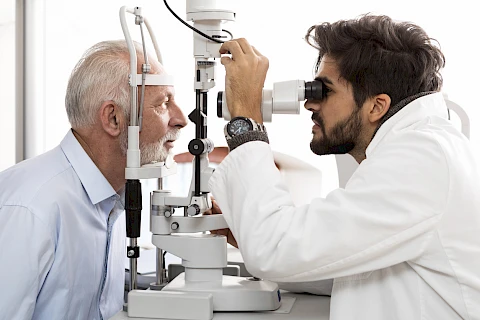
Diabetic retinopathy is a serious eye condition that can significantly impact seniors, especially those living with diabetes. As a caregiver, understanding this condition is vital to helping your loved ones maintain their eye health and quality of life. In this article, we'll explore diabetic retinopathy, its risk factors, stages, and how caregivers can support seniors in managing their eye health.
Diabetic Retinopathy: An Overview
Diabetic retinopathy is an eye disease caused by damage to the blood vessels in the retina due to high blood sugar levels. Diabetes can affect different parts of the eye, leading to complications such as blurred vision, eye pain, and in severe cases, blindness. As the disease progresses, it can become challenging to manage, making caregiver awareness extremely important.
Risk Factors for Seniors
There are several risk factors for diabetic retinopathy, particularly in seniors. Age can increase the likelihood of developing complications related to diabetes. Other factors include:
- Duration of diabetes: The longer your loved one has diabetes, the higher the risk of diabetic retinopathy.
- Blood sugar control: Poorly managed blood sugar levels can accelerate the progression of this eye condition.
- Hypertension: High blood pressure can exacerbate the damage to retinal blood vessels.
- Cholesterol levels: High cholesterol can contribute to blockage and damage in retinal veins.
Understanding these factors can help caregivers monitor and manage seniors' overall health better.
Stages of Diabetic Retinopathy
Diabetic retinopathy progresses through distinct stages, each presenting different challenges and symptoms. The disease begins with mild non-proliferative retinopathy, where small areas of swelling in the retina's blood vessels develop. As it advances to moderate non-proliferative retinopathy, blood vessels that nourish the retina become blocked. In severe non-proliferative retinopathy, more vessels are impeded, depriving the retina of adequate blood supply. The final stage, proliferative diabetic retinopathy, is characterized by the growth of new blood vessels, which can lead to bleeding and vision loss.
Caregivers should watch for symptoms like blurred vision, dark spots, or vision fluctuations. Being aware of these stages can help caregivers understand the progression of the disease and the importance of early intervention.
The Importance of Regular Eye Exams
Regular eye exams are essential to detecting and managing diabetic retinopathy early. An eye doctor can track changes in the retina and recommend treatments to prevent further damage. Seniors with diabetes should have a comprehensive eye exam at least once a year. Early detection can be life-changing, slowing the disease's progression and preserving vision.
Tips for Caregivers
As a caregiver, you play a key role in supporting seniors in managing their eye health. Encourage diabetes management by helping your loved ones maintain stable blood sugar levels through diet, exercise, and medication routines. Facilitate appointments by assisting in scheduling regular eye exams, and consider coordinating transportation if needed. Support lifestyle changes by encouraging healthy food choices and regular physical activity. Attend medical appointments with them to ensure they follow their treatment plan.
By being proactive and supportive, you can help seniors manage their condition effectively. Stay informed, stay involved, and consider reaching out to professional caregiving services for extra support.
Stay Healthy With Senior Helpers
Managing diabetic retinopathy in seniors requires dedication, knowledge, and care. As a caregiver, you can make a difference in your loved one's well-being.
If you need assistance providing care, from healthy meal preparation to transportation to and from important appointments, contact us at Senior Helpers Lincoln/Yuba City. We proudly serve the Lincoln, Newcastle, Sheridan, Marysville, and Yuba City areas. Together, we can make a positive difference in the lives of seniors, ensuring they enjoy a good quality of life with a clear vision.